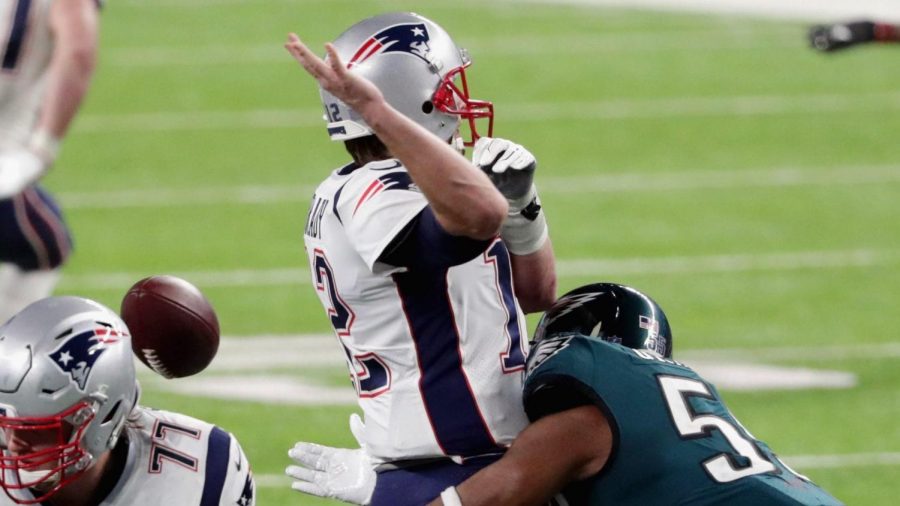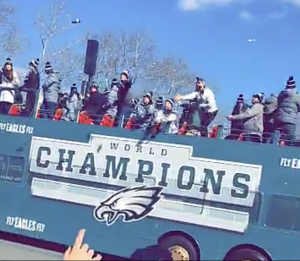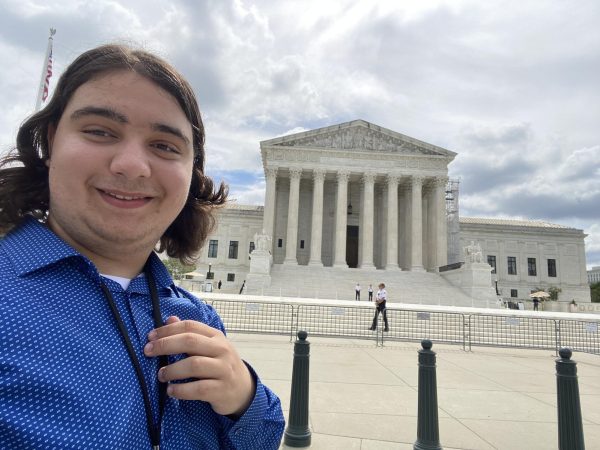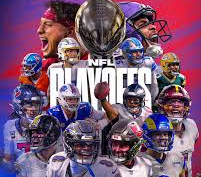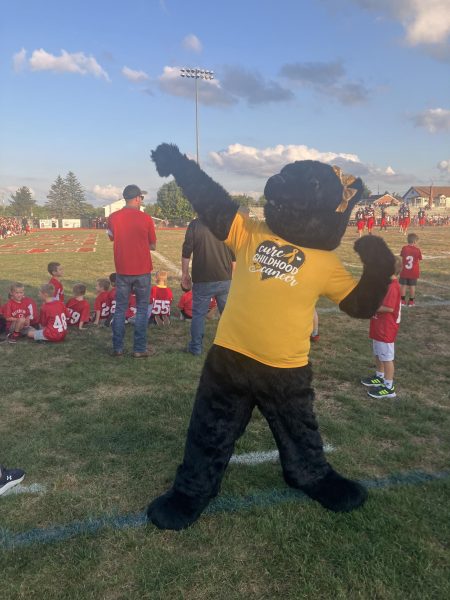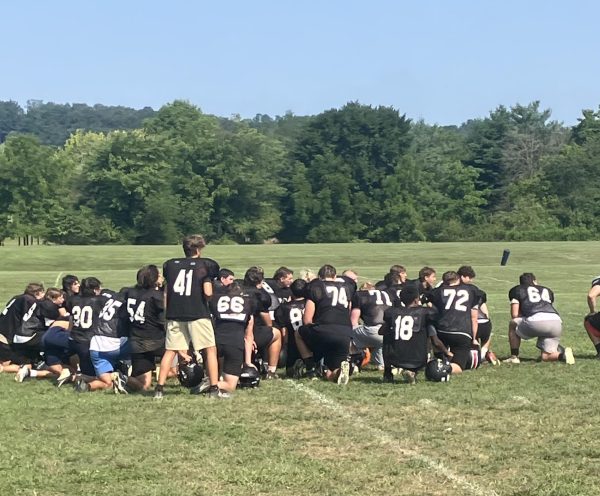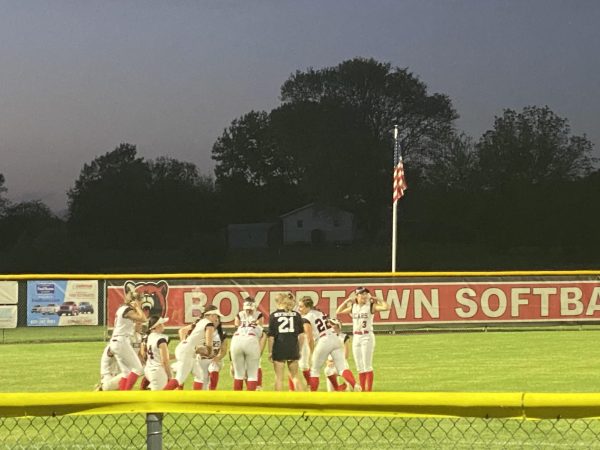Season Re-cap: The Birds’ Long, Hard Road to a Super Bowl Championship
The Eagles’ Brandon Graham strips the ball from Tom Brady in one of the biggest plays of Super Bowl LII.
In a scrappy fight to the finish, the underdog Philadelphia Eagles dethroned the New England Patriots to win the franchise’s first Super Bowl Championship.
Philadelphia fans have been waiting years for this moment — some their whole lives. Many opportunities came for a world championship, but players such as Ron Jaworski and Donovan McNabb couldn’t bring the Lombardi Trophy to the City of Brotherhood Love.
“This win meant a lot to Philly,”Junior Harry Nase said. “The city needed a championship from the Eagles.”
A BUMPY JOURNEY
The Eagles first went to the Super Bowl in 1981, led by head coach Dick Vermeil and quarterback Jaworski. They were defeated by the Oakland Raiders by the score 27-10. They wouldn’t come back to the Super Bowl until 2004 when they faced Tom Brady and the Pats for the first time. The Birds would barely lose in the final moments 24-21.
Making this Super Bowl even more special — and sealing the team’s underdog status — is that the Birds’ fate were in the hands of a backup quarterback who nearly retired two years ago.
Nick Foles was drafted in the third round by the Eagles in 2012. He became the starter in the 2013 season and had an amazing year. He threw 27 touchdowns and only two interceptions. In a game against Oakland, he tied a record for throwing seven touchdowns. Foles led the Birds into the playoffs, but the team lost in the Wildcard round to the New Orlean Saints.
Foles lead his team to a 6-2 start the next year before suffering a broken collarbone — ending his season. During the offseason, he was traded to the St. Louis Rams for quarterback Sam Bradford.
Foles struggled with the Rams, throwing only seven touchdowns in 11 games. He eventually lost his starting job and was released. He has said publicly that he came close to quitting football at this point.
“My faith was tested,” Foles said. “But I just kept leaning on the Lord. Kept praying. We’re so blessed to play this game, but eventually it comes to an end.”
He kept playing and signed with the Kansas City Chiefs, but his troubles followed him. Although he performed better, he wasn’t the same quarterback as he was with the Eagles, and would eventually be released again.
In March of 2017, Foles returned to the Eagles to be the backup of second-year Carson Wentz. For most of the season Wentz would lead the Eagles to the best record in the league and was considered the future MVP.
Then, during the week-14 matchup against the now Los Angeles Rams, Wentz tore his ACL and was removed from the game. Foles came in relief and lead the Eagles to victory. This win clinched their division.
Foles was named starter after it was revealed that Wentz would be out for the season. He displayed his former skills the rest of the season — and the Eagles finished on top of the NFC, defeating the Atlanta Falcons and Minnesota Vikings.
A FORMATIVE FOE
In the Super Bowl, Foles and the Eagles faced the Patriots, one of the strongest teams in the NFL, and were once again considered “underdogs”.
A mostly offensive game from both teams, Eagles tight end Zach Ertz scored the game winning touchdown just before the two-minute warning of the 41-33 championship game.
The Birds started the game with a long drive consuming of 7 minutes, resulting in a 25-yard field goal by Jake Elliot, resulting in the score 3-0.
The Patriots responded with the same kind of drive with veteran kicker Stephen Gostkowski kicking a 26-yard field goal to tie the game.
The Eagles only needed three plays on their next drive to score the game’s first touchdown. Wide Receiver Alshon Jeffery would catch a 34 yard pass from Foles in the left side of the end zone. Elliot would missed the extra point kick as it went wide left, leaving the score 9-3 in eagles’ favor.
Into the second quarter, the Pats failed to capitalize on their drive as Gostkowski missed a 26-yard field goal after a poor snap. The Eagles later scored on Blunt’s 21-yard run but failed on a two-point conversation, leaving the score 15-3.
The Pats were only able to respond with a 45-yard field goal to cut the lead to 9.
The Eagles got the ball back with 7 minutes left in the first half and looked ready to score a touchdown after a 26-yard run, but Foles threw a pass that bounced off Jeffrey and landed into the arms of Patriots safety Duron Harmon. The Pats took advantage of this as James White would score a touchdown on a 26-yard run. Gostkowski would miss another field goal to leave the score as 15-12.
Foles and the Eagles marched to the Pats’ two yard line but faced a fourth down with the half about to end. They decided to go for the touchdown and pulled off “the Philly Special”, a play Brady attempted earlier in the game: as Foles stepped up for a running position, running back Corey Clement took a direct snap and pitched it tight end Trey Burton, who threw the pass perfectly to Foles for the touchdown.
With the extra point, the Eagles led 22-12 as the first half ended.
A MOMENT OF DOUBT
The Pats received the ball to start the second half and seemed to gain momentum similar to last year’s comeback win against the Atlanta Falcons. Tight end Rob Gronkowski scored a touchdown from Brady after only seven plays to make the score 22-19.
This put the Eagles in the underdog position again. This was emphasized by NBC announcer Cris Collinsworth seeming to display favoritism towards the Pats. He got excited when the Pats scored and questioned the Eagles’ every play. When Eagles tight end Zach Ertz scored a touchdown late in the final quarter, Collinsworth continued to question whether or not Ertz maintained control of the ball, even though the officials confirmed the touchdown.
“The announcers, especially Collinsworth, were completely biased towards the Pats,” Senior Justin Smyth said.
The Eagles responded with another touchdown with a 22-yard pass to Clement to bring the score to 29-19. However, the Pats would score again after another touchdown pass from Brady, leaving the score at 29-26. As the third quarter ended, the Eagles made it to New England’s 16-yard line.
The final quarter began with Elliot scoring a field goal to make it 32-26 in Eagles favor. However, Brady would respond with another touchdown drive — passing it to Gronkowski, leaving the score 33-32. This was New England’s first lead of the game.
SEALING THE VICTORY
The Eagles could feel the game slipping away, but the underdogs were not going to leave without a fight.
With 5 minutes left in the game, the Eagles faced a fourth down on their own 45-yard line. The Birds elected to go for the first down instead of punting. Foles completed a 2-yard pass to Ertz to keep the drive alive. The Eagles slowly marched down the field as the clock wound down. Foles threw a touchdown to Ertz with 2 minutes left in the game to take the lead 38-33.
On the Pats’ next drive, Eagles defensive end Brandon Graham stripped the ball away from Brady as the Eagles recovered the fumble. The hungry dogs got their meal.
“The best play of the game was the strip-sack on Brady,” Smyth said. “It prevented the Pats from winning the game.”
The Eagles would run the ball and force the Pats to use their remaining time outs to stop the clock. Elliot then kicked a 46-yard field goal to leave the score as 41-33.
The Pats needed a touchdown and a two-point conversion to tie the game and send it into overtime for second Super Bowl in a row. After nine plays, the Pats reached the 49-yard line, and with only nine seconds remaining Brady threw a Hail Mary Pass to end zone, but it was unsuccessful. With time expired, the Eagles won the Super Bowl for the first time!
Foles, who completed 28 of 43 passes for 373 yards and three touchdowns with one interception, and caught a 1-yard touchdown pass, was named Super Bowl MVP.
The underdogs became the top dogs.

James is a senior and Editor-in-Chief. This is his third year writing for the Cub. He is involved in journalism because he enjoys writing and reporting...












